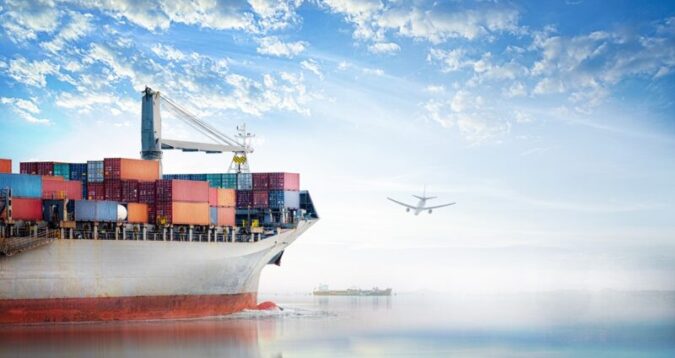Working in the shipping industry offers a myriad of benefits that extend far beyond the confines of the sector itself, playing a pivotal role in bolstering the global economy and contributing significantly to environmental sustainability. Here we delve into the multifaceted ways in which the shipping industry serves as a cornerstone for economic prosperity and environmental stewardship.
Economic Benefits of the Shipping Industry
Global Trade Facilitation
The shipping industry is the backbone of international trade, handling over 80% of global merchandise trade by volume. This industry ensures the efficient, cost-effective transportation of goods across continents, thereby facilitating trade, fostering economic growth, and supporting millions of jobs worldwide. By providing a reliable means of transport, shipping enables businesses to access international markets, leading to increased competitiveness and diversity in products available to consumers.
Job Creation and Economic Growth
The shipping industry is a significant source of employment, both directly through jobs in shipping companies, ports, and maritime sectors, and indirectly through the wider maritime cluster, including shipbuilding, equipment manufacturing, and logistics services. These jobs for shippers contribute to economic growth and stability in coastal communities and beyond. The industry’s extensive supply chain and its demand for a wide range of services stimulate economic activity in multiple sectors, from finance and insurance to tourism and hospitality.
Infrastructure Development
Investment in port infrastructure and maritime navigation technologies not only enhances the efficiency of shipping operations but also drives economic development. Modern, well-equipped ports facilitate quicker turnaround times for ships and improve the logistics chain, reducing costs for exporters and importers. Furthermore, the development of maritime infrastructure often leads to the improvement of surrounding areas, including roads, railways, and telecommunications, benefitting local economies.
Environmental Benefits of the Shipping Industry
Energy Efficiency and Emissions Reduction
Compared to other modes of transport, shipping is the most energy-efficient way to move goods over long distances, offering the lowest carbon footprint per tonne-mile. The industry has made significant strides in adopting cleaner technologies and fuels, improving ship design, and enhancing operational efficiencies to reduce emissions. International regulations, such as those enforced by the International Maritime Organization (IMO), aim to cut the shipping industry’s greenhouse gas emissions by at least 50% by 2050 compared to 2008 levels.
Sustainable Practices and Innovations
The shipping industry is increasingly embracing sustainable practices, including the use of liquefied natural gas (LNG) as a cleaner fuel alternative, implementing ballast water management systems to protect marine ecosystems, and investing in digital technologies to optimize routes and reduce fuel consumption. These innovations not only mitigate the environmental impact of shipping operations but also pave the way for a more sustainable global supply chain.
Protection of Marine Ecosystems
The shipping industry plays a crucial role in protecting marine ecosystems through adherence to stringent environmental regulations and participation in conservation initiatives. Measures to prevent oil spills, reduce noise pollution, and manage ship-generated waste contribute to the preservation of marine biodiversity. Collaborative efforts between the industry, governments, and environmental organizations are essential in promoting the health of our oceans and ensuring the sustainable use of marine resources.
Challenges and Future Directions
While the shipping industry offers significant economic and environmental benefits, it faces challenges, including the need to further reduce greenhouse gas emissions, address labor standards, and enhance maritime safety. The future of shipping lies in innovation, regulation, and global cooperation to address these challenges. Investments in research and development, the adoption of green technologies, and the implementation of global standards for sustainability and labor practices will be key to ensuring the industry continues to contribute positively to the economy and the environment.
Conclusion
The shipping industry is a linchpin of global economic stability and a proponent of environmental sustainability. Its role in facilitating international trade, generating employment, and driving economic development is indispensable. Simultaneously, the industry’s commitment to reducing its environmental footprint and protecting marine ecosystems highlights its potential to contribute to a more sustainable future. As the world continues to navigate the complexities of globalization and environmental conservation, the shipping industry stands as a testament to the power of innovation and collaboration in achieving economic prosperity and ecological harmony.

